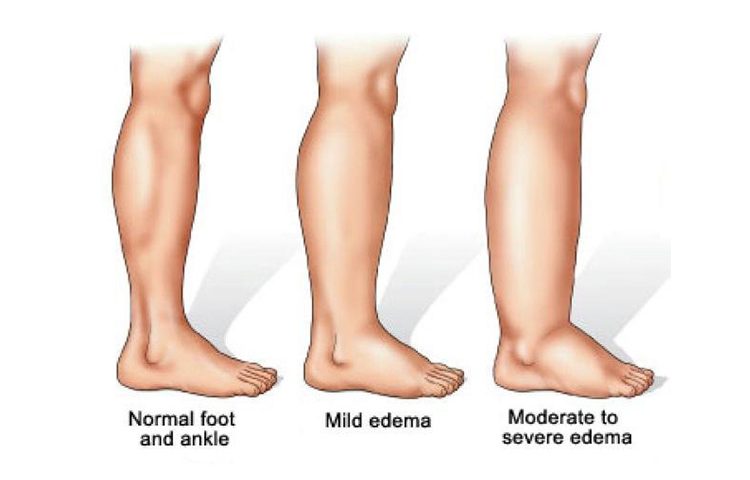Lymphedema

Understanding Lymphedema
Lymphedema is a chronic condition that causes swelling in various parts of the body due to the accumulation of lymphatic fluid. It happens when the lymphatic system, which is in charge of draining excess fluid from tissues, is harmed or compromised. The condition most commonly affects the arms and legs, but it can also affect other areas.
Causes and Risk Factors
Lymphedema can be primary or secondary. Primary lymphedema is usually caused by inherited lymphatic system abnormalities, whereas secondary lymphedema occurs as a result of lymphatic system damage, which is frequently caused by surgery, radiation therapy, infections, or trauma.
Medical History Evaluation
During your initial consultation, the specialist will conduct a thorough evaluation of your medical history. This step is crucial as it helps the doctor understand your symptoms, any underlying conditions, and any potential risk factors that may contribute to the development of varicose veins. Be prepared to answer questions about your lifestyle, occupation, family history, and any previous treatments you may have undergone.
Certain risk factors increase the likelihood of developing lymphedema. These include obesity, age, a history of cancer or cancer treatment, infection, and a sedentary lifestyle.
Symptoms and Diagnosis
The primary symptom of lymphedema is persistent swelling in the affected area. Other symptoms may include heaviness, discomfort, restricted mobility, recurrent infections, and hardening or thickening of the skin. A healthcare professional can diagnose lymphedema through a physical examination, medical history review, and diagnostic tests such as lymphoscintigraphy or MRI.
Treatment Options
CDT is a comprehensive treatment approach for lymphedema that combines several techniques. It includes manual lymphatic drainage (MLD), compression bandaging, skincare, exercise, and self-care education. CDT aims to reduce swelling, improve lymphatic flow, and enhance overall well-being.
Compression garments or bandages are commonly used to manage lymphedema. They help maintain reduced limb size achieved through CDT and prevent further fluid buildup. Compression sleeves, stockings, or wraps are customized to each patient’s needs.
Physical activity, including targeted exercises, can help stimulate lymphatic flow, strengthen muscles, and improve mobility. Physical therapists specialized in lymphedema treatment design personalized exercise programs tailored to individual needs.
Certain medications may be prescribed to manage lymphedema symptoms. These may include diuretics to reduce fluid retention or antibiotics to treat infections.
In severe cases of lymphedema that do not respond adequately to conservative treatments, surgical options such as lymphaticovenous anastomosis or lymph node transfer may be considered. These procedures aim to improve lymphatic drainage and reduce swelling.
Lifestyle Management
In addition to medical interventions, certain lifestyle modifications can help manage lymphedema effectively. These include maintaining a healthy weight, practicing good skincare, avoiding extreme temperatures, and protecting the affected area from injuries and infections.
Prevention Tips
While lymphedema cannot always be prevented, certain precautions can minimize the risk of developing the condition or manage its progression. These include avoiding trauma to the limbs, practicing proper skincare, wearing compression garments during air travel, and staying active.
Support and Resources
Living with lymphedema can be challenging, but there are support groups, online communities, and resources available to assist patients. Smiles Hospitals offer comprehensive support and guidance throughout the treatment process, ensuring patients receive the care they need.
The Expertise of Smiles Hospitals in Lymphedema Treatment
Smiles Hospitals is renowned for its expertise in lymphedema treatment. With a team of experienced healthcare professionals and advanced treatment facilities, they offer personalized care plans tailored to each patient’s needs. The hospital’s multidisciplinary approach ensures comprehensive treatment, addressing both the physical and emotional aspects of lymphedema.
Conclusion
Lymphedema is a chronic condition that requires specialized care and management. Smiles Hospitals provides effective treatment options, including complete decongestive therapy, compression therapy, exercise programs, and surgical interventions. With their expertise and dedication to patient care, Smiles Hospitals is a trusted destination for lymphedema treatment
FAQ'S
The success rate of lymphedema treatment at Smiles Hospitals varies depending on the individual case. However, their multidisciplinary approach and personalized treatment plans have resulted in positive outcomes for many patients.
The duration of lymphedema treatment varies depending on the severity of the condition and the individual’s response to therapy. It may range from several weeks to months, and in some cases, long-term management may be required.
While rare, some individuals may experience temporary side effects such as mild discomfort, skin irritation, or changes in sensation. The healthcare team at Smiles Hospitals closely monitors patients and provides appropriate guidance to manage any potential side effects.
While lymphedema cannot be completely cured, it can be effectively managed with the right treatment and lifestyle modifications. Early diagnosis and intervention play a crucial role in minimizing symptoms and improving quality of life.
Coverage for lymphedema treatment varies depending on insurance plans and policies. It is advisable to consult with the hospital and insurance provider to understand coverage details and potential out-of-pocket expenses.
